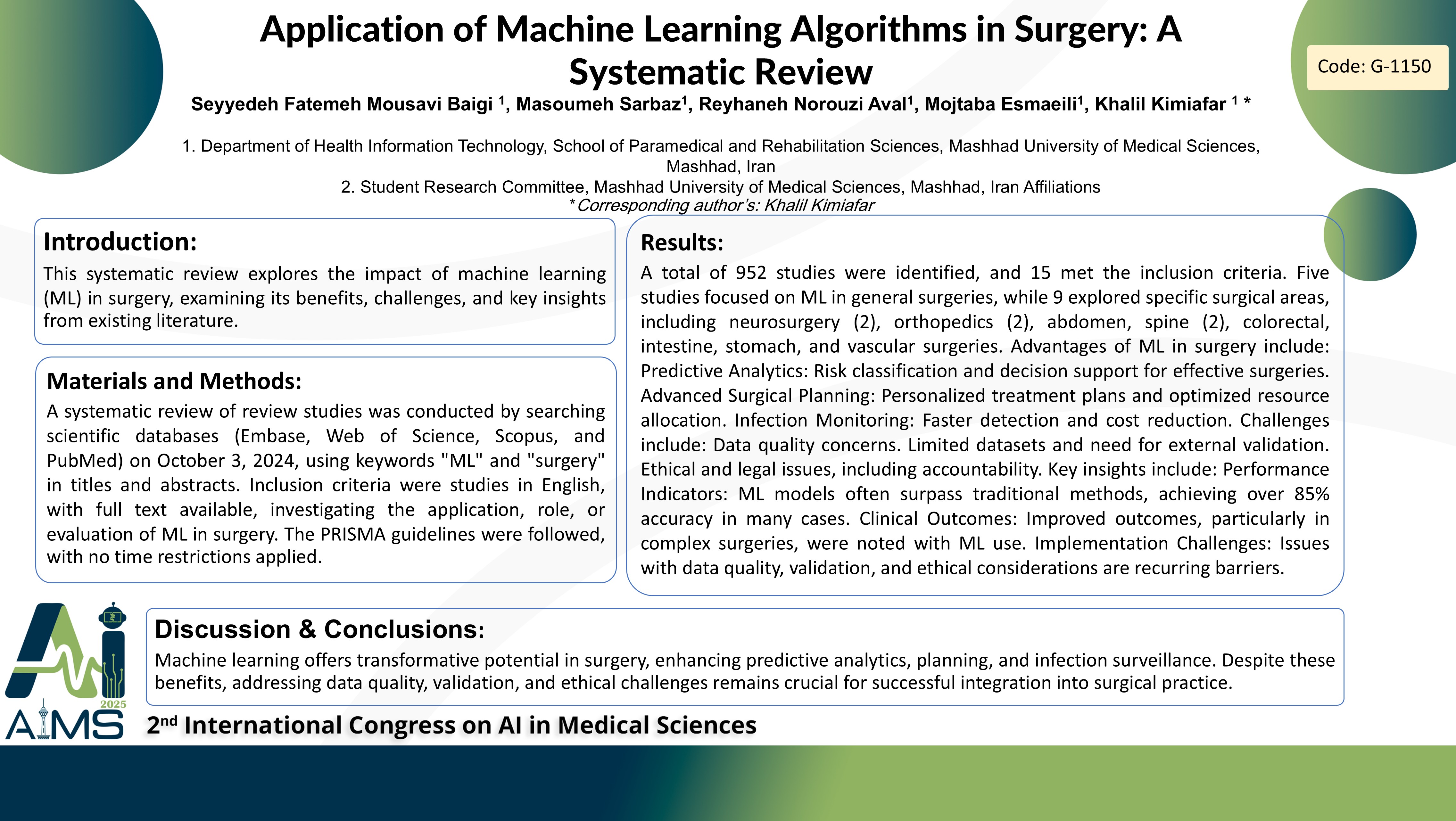Application of Machine Learning Algorithms in Surgery: A Systematic Review
Code: G-1150
Authors: Seyyedeh Fatemeh Mousavi Baigi, Masoumeh Sarbaz, Reyhaneh Norouzi Aval, Mojtaba Esmaeili ℗, Khalil Kimiafar *
Schedule: Not Scheduled!
Tag: Robotics in Surgery and Care
Download: Download Poster
Abstract:
Abstract
Introduction: This systematic review explores the impact of machine learning (ML) in surgery, examining its benefits, challenges, and key insights from existing literature. Methods: A systematic review of review studies was conducted by searching scientific databases (Embase, Web of Science, Scopus, and PubMed) on October 3, 2024, using keywords "ML" and "surgery" in titles and abstracts. Inclusion criteria were studies in English, with full text available, investigating the application, role, or evaluation of ML in surgery. The PRISMA guidelines were followed, with no time restrictions applied. Results: A total of 952 studies were identified, and 15 met the inclusion criteria. Five studies focused on ML in general surgeries, while 9 explored specific surgical areas, including neurosurgery (2), orthopedics (2), abdomen, spine (2), colorectal, intestine, stomach, and vascular surgeries. Advantages of ML in surgery include: Predictive Analytics: Risk classification and decision support for effective surgeries. Advanced Surgical Planning: Personalized treatment plans and optimized resource allocation. Infection Monitoring: Faster detection and cost reduction. Challenges include: Data quality concerns. Limited datasets and need for external validation. Ethical and legal issues, including accountability. Key insights include: Performance Indicators: ML models often surpass traditional methods, achieving over 85% accuracy in many cases. Clinical Outcomes: Improved outcomes, particularly in complex surgeries, were noted with ML use. Implementation Challenges: Issues with data quality, validation, and ethical considerations are recurring barriers. Conclusion: Machine learning offers transformative potential in surgery, enhancing predictive analytics, planning, and infection surveillance. Despite these benefits, addressing data quality, validation, and ethical challenges remains crucial for successful integration into surgical practice.
Keywords
Surgery, Machine Learning, ML, Artificial Intelligence
